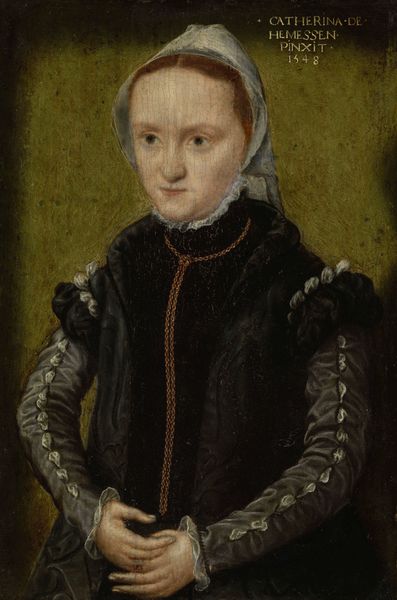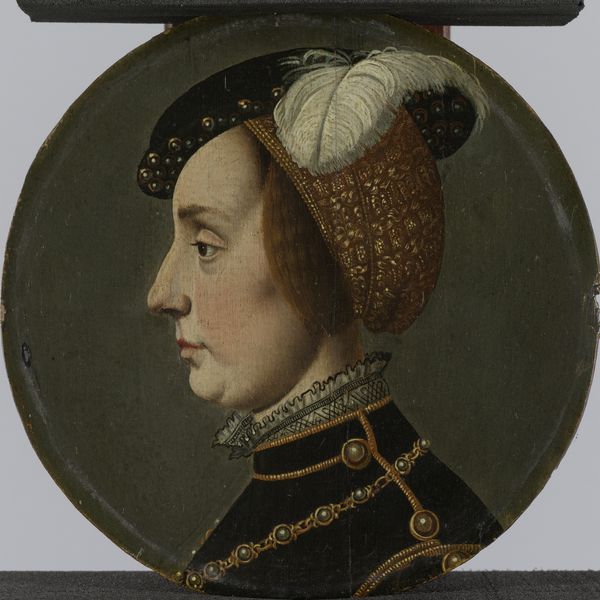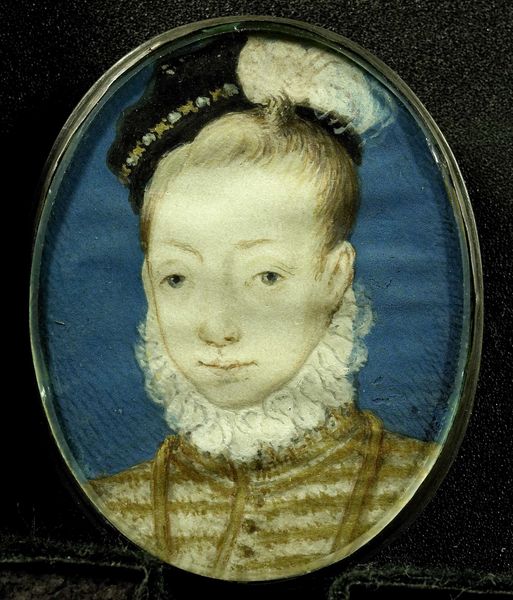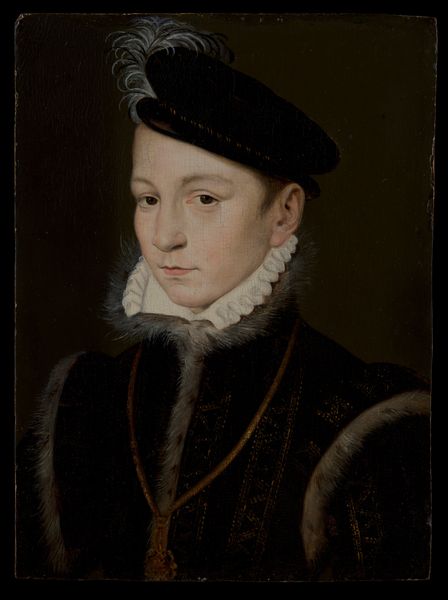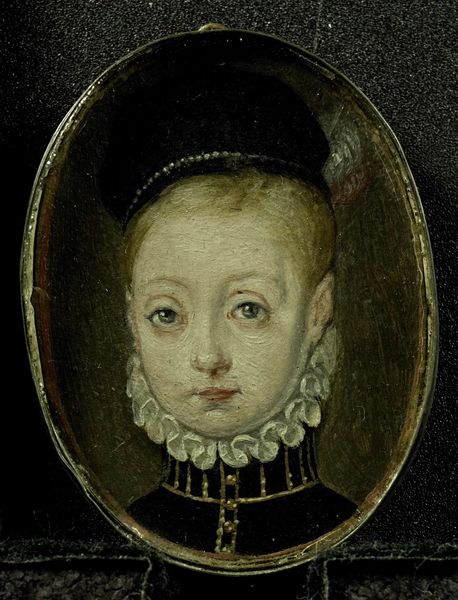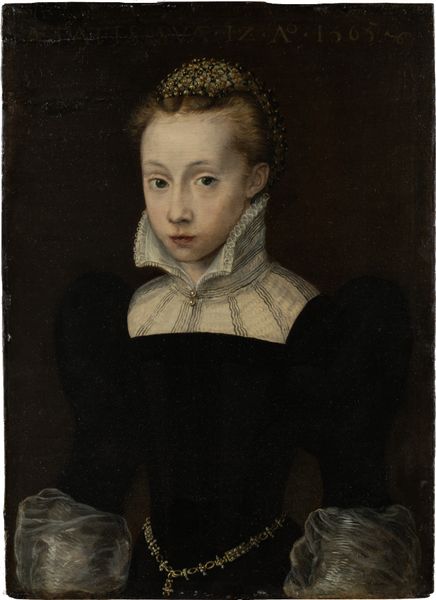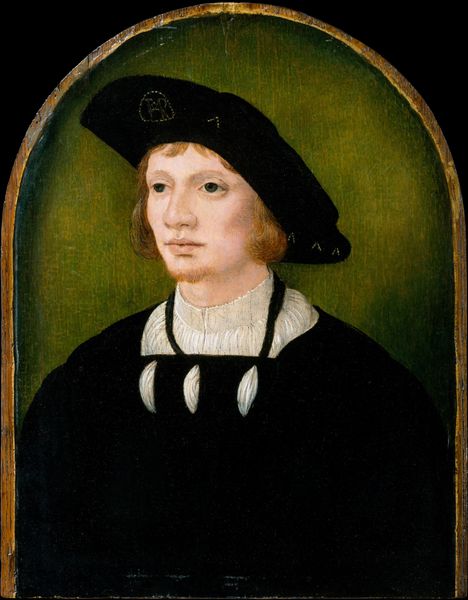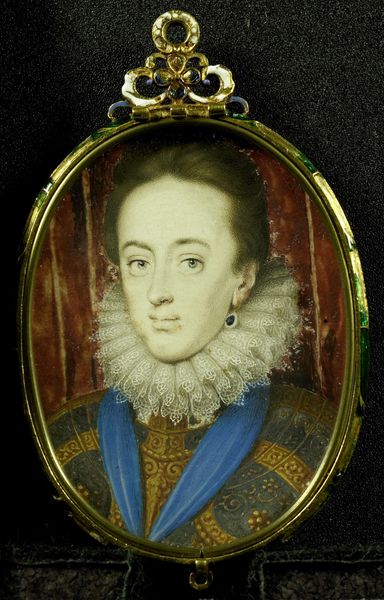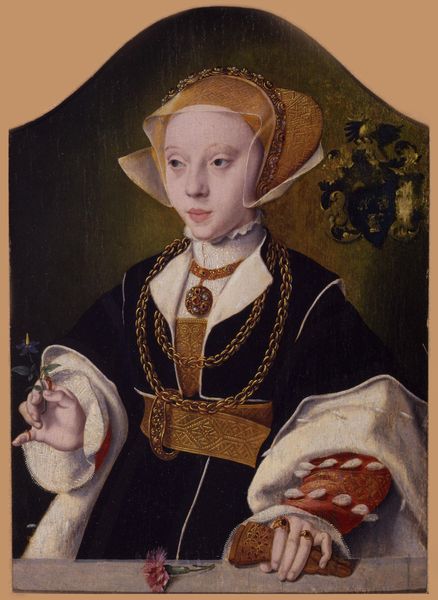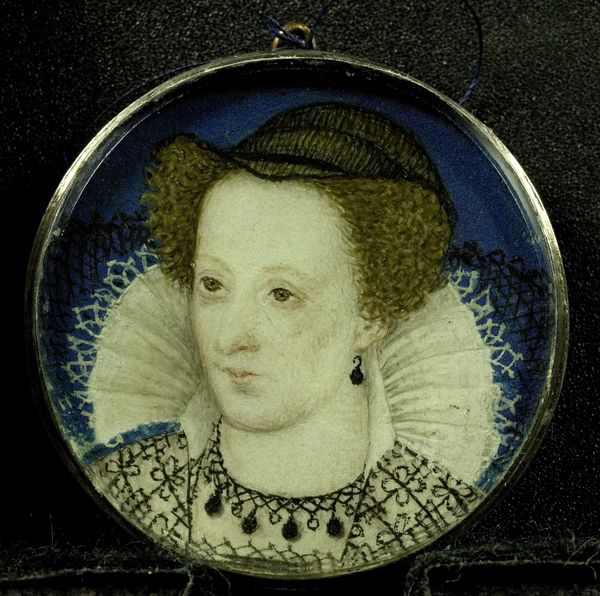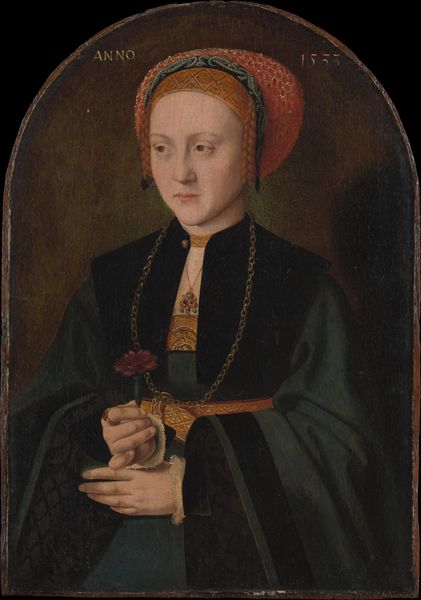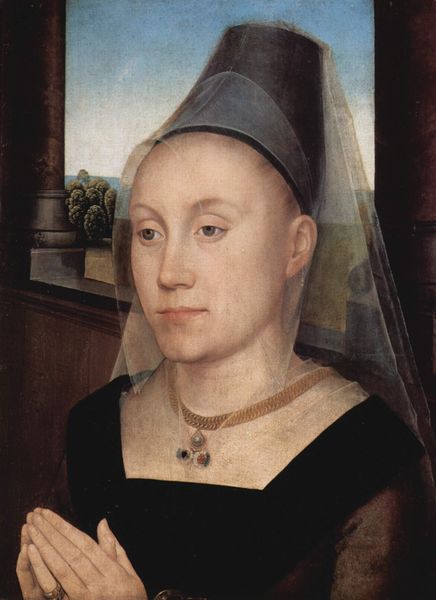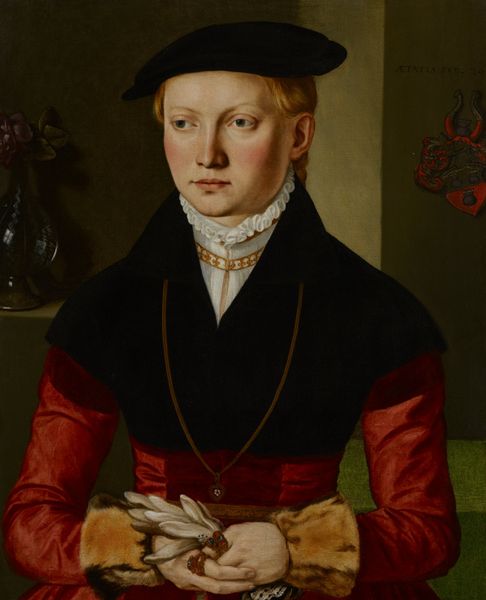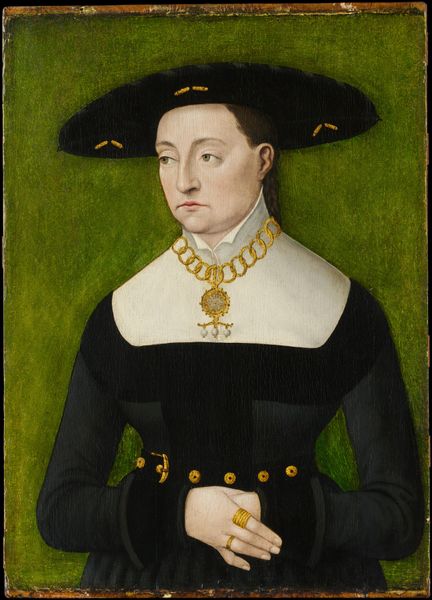
painting, oil-paint
#
portrait
#
painting
#
oil-paint
#
oil painting
#
history-painting
#
northern-renaissance
Dimensions: support diameter 17.5 cm, thickness 0.6 cm, depth 5.4 cm
Copyright: Rijks Museum: Open Domain
This small, round portrait of Edward VI was painted in England, around 1550, by an anonymous artist. Executed in oil on a wooden panel, its smooth surface belies the meticulous process involved. Think of the careful layering of paint, each coat demanding time and patience. The artist would have ground their own pigments, combining them with oil to achieve the desired hues. The application of delicate glazes would have added depth and luminosity to Edward’s face, capturing his youthful features. The choice of wood as a support also speaks volumes. Unlike canvas, wood provides a rigid surface, perfect for capturing fine details. The circular format may allude to the Renaissance interest in classical antiquity, but it also resembles a medallion, suggesting the power and authority of the sitter. Ultimately, this portrait reminds us that even seemingly simple images are the result of skilled labor, artistic vision, and material choices that all contribute to the artwork's meaning.
Comments
No comments
Be the first to comment and join the conversation on the ultimate creative platform.
